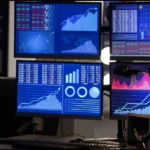
Key Takeaways
- Background checks are a critical element in establishing trust, safeguarding work environments, and selecting well-qualified hires across every industry.
- Digital and automated screening tools now enable employers to efficiently and accurately verify information for both local and global candidates.
- Transparency, fairness, and data privacy should always be at the heart of any pre-employment screening process.
- This in-depth guide addresses the full scope of background checks, their value for organizations, best practices, and emerging global trends.
How Workplaces Are Changing
The employment landscape is currently undergoing a transformation, unlike anything seen in recent decades. The rise of remote work, hybrid schedules, and geographically dispersed teams is fundamentally changing the recruiting process. In this environment, hiring managers and HR professionals are tasked not only with finding the most qualified talent but also with ensuring that those hires can be trusted from a distance. In-person interviews and local reference checks, once the norm, are no longer sufficient for mitigating risk, especially when onboarding someone who may never work in an office physically. Learn more about innovations in employment screening and why organizations worldwide are embracing better, technology-driven solutions for modern workforce challenges.
This shift isn’t rooted in mistrust. Rather, it reflects a growing desire for safe, compliant, and culturally aligned teams. As digital hiring ramps up, companies must now evaluate candidates’ qualifications, backgrounds, and suitability with tools that bridge distance and minimize bias. The future of work requires effective, efficient, and transparent screening practices to ensure that company values are consistently met, regardless of employees’ locations.
What a Background Check Covers
Today’s comprehensive background checks are about far more than searching for a criminal record. They are routine, responsible steps that give employers confidence in a candidate’s history and abilities. A standard background screening typically covers identity verification, confirmation of educational achievements and professional certifications, employment history, and a search for criminal or financial records that may pertain to the role. The UK government’s guide on basic checks outlines how processes can be tailored to different industries, from finance to health and social care, to protect both organizations and the people they serve.
Increasingly, checks are conducted digitally, allowing candidates to upload documentation and authorization securely. This digital approach streamlines procedures and reduces paperwork errors, delivering a clear and positive experience for both employers and applicants. Employers conducting checks are also required to comply with regulations, such as the GDPR, ensuring that sensitive information is handled transparently and fairly.
Digital Tools Transforming Screening
Technological innovation has dramatically improved the pre-employment screening experience for both companies and candidates. Gone are the days of long wait times, tedious paper forms, and manual communications with universities or previous employers. Automated digital systems now instantly cross-check candidate-provided details with trusted databases. Artificial intelligence can spot discrepancies across a wide range of data sources, while secure online platforms streamline everything from ID uploads to reference requests.
- Digital onboarding portals make the process more accessible and transparent for candidates, allowing them to see exactly where they stand in the process.
- Blockchain systems provide secure and tamper-resistant record-keeping, thereby further enhancing confidence in verification.
- International data sources simplify global hiring, as companies can reliably vet overseas candidates without leaving compliance to chance.
These trends extend benefits well beyond HR. Better screening reduces the likelihood of fraud, accelerates the time-to-hire process, and can improve the overall quality of an organization’s workforce—all while respecting candidates’ privacy and dignity.
Why Employers Prioritize Screening
For employers, screening is fundamentally about protecting the physical workplace, customers and clients, proprietary data, and financial assets. According to the Chartered Institute of Personnel and Development, a single poor hiring decision can cost three to four times the annual salary of the role involved. These losses stem not just from financial turnover costs but from reduced morale, damaged reputations, and increased legal or regulatory scrutiny. Comprehensive background checks are crucial for identifying potential red flags, such as fraudulent employment claims or undisclosed criminal history, before they become costly real-world problems.
Furthermore, transparent and meticulous screening processes help foster a culture of accountability, where every member of the organization understands that integrity is valued. When employees feel that hiring is handled with fairness and rigor, companies build trust from day one.
Addressing Candidates’ Common Concerns
It’s natural for applicants to feel anxious about background checks. Concerns range from outdated infractions and incorrect records to simple misunderstandings that may hinder valid employment opportunities. The good news is that most reputable employers focus on recent and relevant information rather than punishing candidates for long-past or unrelated issues. Modern digital screening systems often allow candidates to track the status of their checks, making the process less mysterious or intimidating.
The most successful hiring journeys emerge from honesty and clear communication. Candidates are increasingly encouraged to view background checks as their opportunity to highlight personal growth and to be upfront about any issues. Early, honest conversations build trust, and many employers appreciate transparency, which allows them to work with candidates to put concerns in proper context.
A Look at Background Checks Around the World
As organizations expand internationally, they must adapt their approach to background screening to remain compliant with a complex web of regulations. For example, the United States imposes differing background check laws by state, ranging from timing restrictions to outright bans on certain types of checks. Meanwhile, European employers must carefully adhere to the GDPR, ensuring that personal data is handled lawfully and only when necessary for the position.
In Asia, Africa, and the Middle East, the landscape is even more fragmented, with local customs and new legal frameworks evolving rapidly as workplaces become more global. Success in this area depends on understanding local law, being culturally sensitive, and prioritizing fairness for every candidate. Informed employees and employers alike are better equipped to navigate these nuances for smooth cross-border hiring.
Best Practices for Transparent Hiring
- Communicate the scope, timing, and rationale of background checks to every applicant.
- Limit data collection strictly to what is relevant for the specific job, upholding privacy and fairness throughout.
- Obtain and document candidate consent, ensuring that their personal information is safeguarded to global standards, such as the GDPR.
- Address discrepancies or unclear results with a willingness to listen and consider explanations.
- Stay informed through HR associations and official bodies to ensure ongoing compliance with evolving laws and regulations.
When these best practices are embedded in a company’s culture, they enhance its reputation, minimize legal risks, and build longer-lasting teams based on mutual trust.
New Developments in Pre-Employment Screening
Pre-employment screening is evolving quickly as new challenges and opportunities appear. Artificial intelligence can now process thousands of data points in seconds, flagging inconsistencies or unusual activity patterns that reduce the risk of oversight. Blockchain allows for credentials and past employment history to be securely recorded and instantly verified. Automation and machine learning are automating repetitive tasks while leaving nuanced decision-making to human hands. However, these innovations increase the need for vigilant oversight to prevent errors, bias, or privacy violations.
The landscape is changing rapidly, with regulations struggling to keep pace. Personnel Today covers trends and risks to watch, including identity theft, cyber risks, and unintended algorithmic bias. The responsible adoption of new technology will be a defining feature of successful and trustworthy companies in the years ahead.

Understanding SaaS: A Game-Changer for Modern Businesses

How to Choose a Mobile App Development Company

Top Software Solutions Small Businesses Need for Workforce Management

AI in Marketing Is No Longer a Buzzword — It’s the Strategy

How to Maximize Insulation Performance with Metal Wall Panels

How to Maximize Insulation Performance with Metal Wall Panels

Why Background Checks Matter in Today's Hiring Landscape









